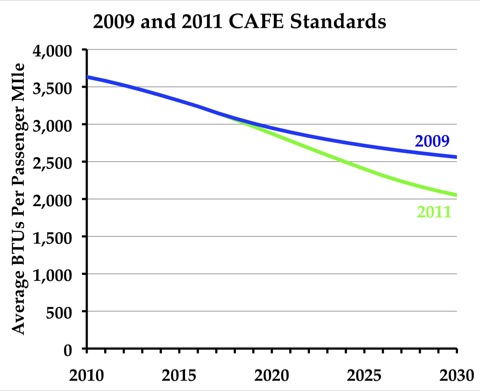It is likely that, by the time you read this, the Department of Transportation and Environmental Protection Agency will have made a joint announcement about reforming the corporate average fuel economy (CAFE) standards. Originally adopted in 1978, when new cars were required to average all of 18 miles per gallon, the standards were increased by the Obama administration to a target of 54.5 mpg by 2025. (This 54.5 is actually an idealized number; as a practical matter, the real target for 2025 is about 39 mpg.)
As I am writing this, I don’t know exactly what today’s proposal will be, but an article in yesterday’s Wall Street Journal by DOT secretary Elaine Chao and acting EPA administrator Andrew Wheeler provides some hints. Most important, the article notes that the goal is “to create one national standard.” This means that California won’t be able to impose its own, stronger standards.
As the Competitive Enterprise Institute’s Marlo Lewis observes, when Congress created the CAFE program in 1975, it specially forbade states from adopting their own stronger rules, probably because this would greatly increase the costs of compliance to manufacturers. Despite that, the Obama administration decided to exempt California from the one-national-standard rule. The Trump administration is going back to the actual law. Continue reading








